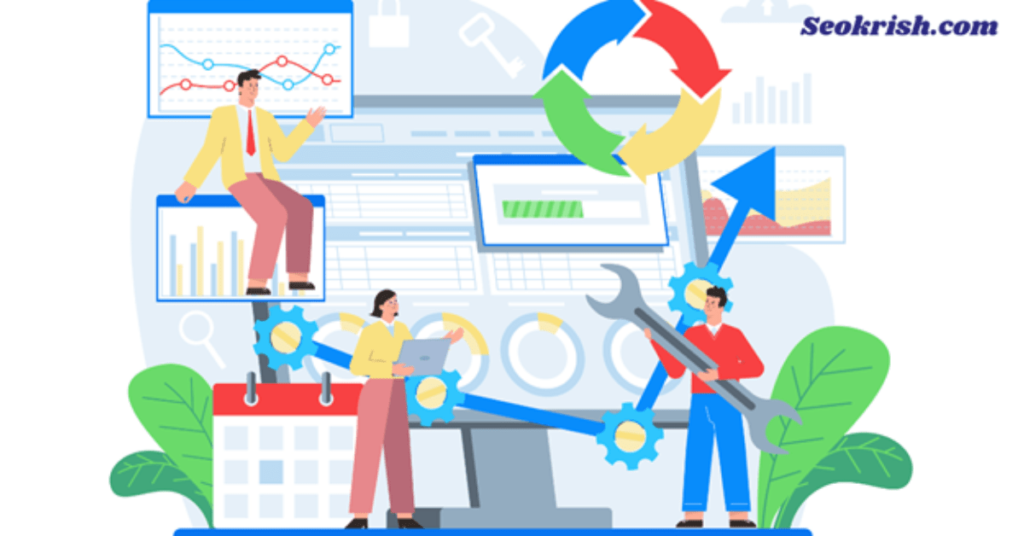Website optimization in the modern digital world has become of crucial importance to online success, particularly for those platforms that hold millions of pages. Optimization of websites with large content comes along with certain challenges and opportunities to have a great influence on user experience, search engine visibility, and overall performance. The following article is devoted to the discussion of some efficient methods on how to optimize big websites, thus keeping them competitive and user-friendly in the continuously changing digital world.
Scope of Website Optimization
Website optimization on big platforms starts with a full assessment of the website’s structure, content, and technical aspects. This assessment will show issues that must be improved and possible complications that may develop during the optimization process. Such an in-depth analysis can create a basis for delivering a strategy tailored to the needs of website optimization.

How to Prioritize Optimization Efforts
Now, considering the billions of pages any major site makes up, optimization activity must be done based on impact versus its feasibility. Comprehending user behavior, search engine insights, and business goals, one could identify the most critical optimization challenges and come up with a strategic roadmap that would ensure effective resource allocation, aligning optimization efforts with overall goals. It enabled effective optimization strategies. Content organization and structure
A well-structured content framework forms the very base of website optimization for large platforms. Indeed, a logical hierarchy of categories and subcategories sets up proper navigation for users and better crawlability for search engines. Optimizing meta tags, headings, and URLs will enhance the discoverability and relevance of content and thus contribute to better search engine rankings.
Technical Optimization
Technical factors are very instrumental in the process of website optimization on huge platforms. They include the following:
- Improving the site’s speed by compressing files and caching
- Enhancing mobile responsiveness
- Design schema markup for better crawler understanding, optimize Robots.txt and XML sitemaps and resolve issues of duplicated content.
- Quality and Relevance of Content
For websites running into millions of pages, it is challenging to ensure quality and relevance. Optimizing such websites for the same involves:
- Providing periodical audits and refreshing the content
- Intentional content strategy that aligns the user’s intent
- Distribute page authority through internal linking
- Topic clusters for topical authority
These practices enhance user engagement and simultaneously signal to search engines about the quality of content.
Scale Optimization Efforts: Automate and Integrate Tools
This, therefore, underlines the requirement of automation in effectively managing website optimization for large platforms. Integrating the tools to automate metadata optimization, broken link checking, performance monitoring, and so on saves a lot of time and other resources and helps in performing tasks seamlessly. A number of essential tools should be used for large-scale website optimization. Some are:
- Crawling tools like Screaming Frog or DeepCrawl
- Analytics platforms like Google Analytics or Adobe Analytics
- SEO suites like Ahrefs or SEMrush
- Performance monitoring tools such as GTmetrix or PageSpeed Insights Continuous monitoring and iteration
The optimization of a website is not an event but a process, especially in large platforms. This can be made possible by laying down a system that allows constant monitoring, analysis, and improvement. This includes:
- Performance metrics analysis at periodic intervals
- A/B testing of various optimization strategies
- Following up on search algorithm changes
- Adapting to changing user behavior and preferences
By embracing this culture of constant improvement, website owners can be assured that their platforms will be well-optimized and competitive for a very long time.
AI and Machine Learning
Artificial Intelligence and Machine Learning are changing the way large-scale platforms optimize their websites. These technologies make things like personalizing the user experience at scale, predicting and preventing technical problems, automating content optimization and generation, and gaining deeper insights into user behavior and preferences possible. Incorporating AI and ML into website optimization strategies would greatly help large platforms outrank others in terms of performance and user satisfaction.
Conclusion
Modern digital ecosystem optimization for millions-of-page platforms is a complex process but very practical. Understanding the challenges with large-scale optimization, focusing efforts, effective strategies, and state-of-the-art technologies in this scenario will remarkably enhance website owners’ online presence. The secret to success will be using a holistic approach toward optimization and balancing technical performance with user experience and quality of content. By staying true to this continuous optimization, the largest websites will grow more agile, user-friendly, and competitive in the online marketplace.



